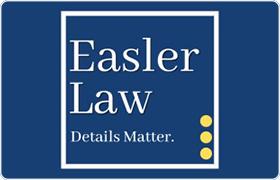Satellite Beach Real Estate Lawyer, Florida, page 2
Sponsored Law Firm
-
 x
x

Click For More Info:
-
Easler Law, PLLC
508 N. Harbor City Blvd. Melbourne, FL 32935» view mapReal Estate Law Details Matter.®
At Easler Law we recognize that small details can make a tremendous impact. Attorneys who take the time to listen carefully and understand their clients.
800-676-7130
Jeanna Bialczak Carroll
Commercial Real Estate, International Tax, Estate Planning, Estate
Status: In Good Standing Licensed: 26 Years
Greg Jean-Denis
Commercial Real Estate, Real Estate, Estate Planning, Personal Injury
Status: In Good Standing Licensed: 18 Years
Michael James Brutz
Commercial Real Estate, Estate Planning
Status: In Good Standing Licensed: 43 Years
Diane C Baccus Horsley
Commercial Real Estate, Federal Appellate Practice, Family Law, Elder Law
Status: In Good Standing Licensed: 44 Years
 Andrew Easler Melbourne, FL
Andrew Easler Melbourne, FL Practice AreasExpertise
Practice AreasExpertise
